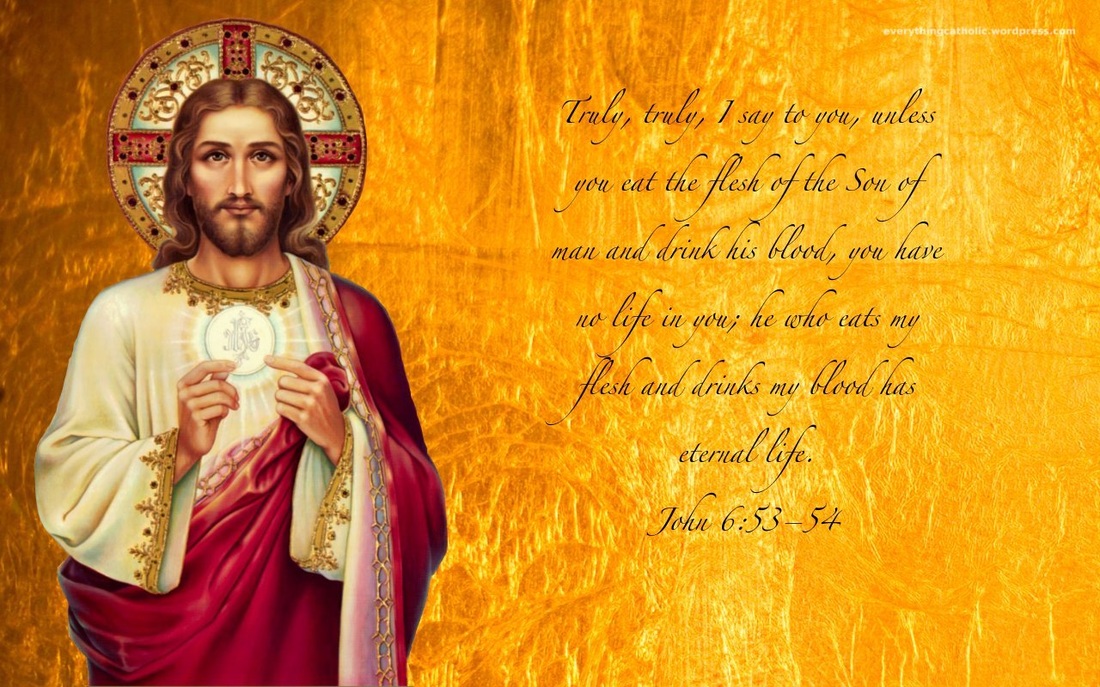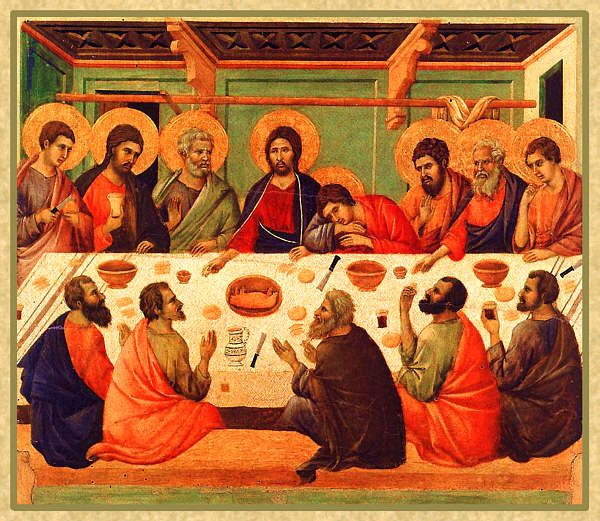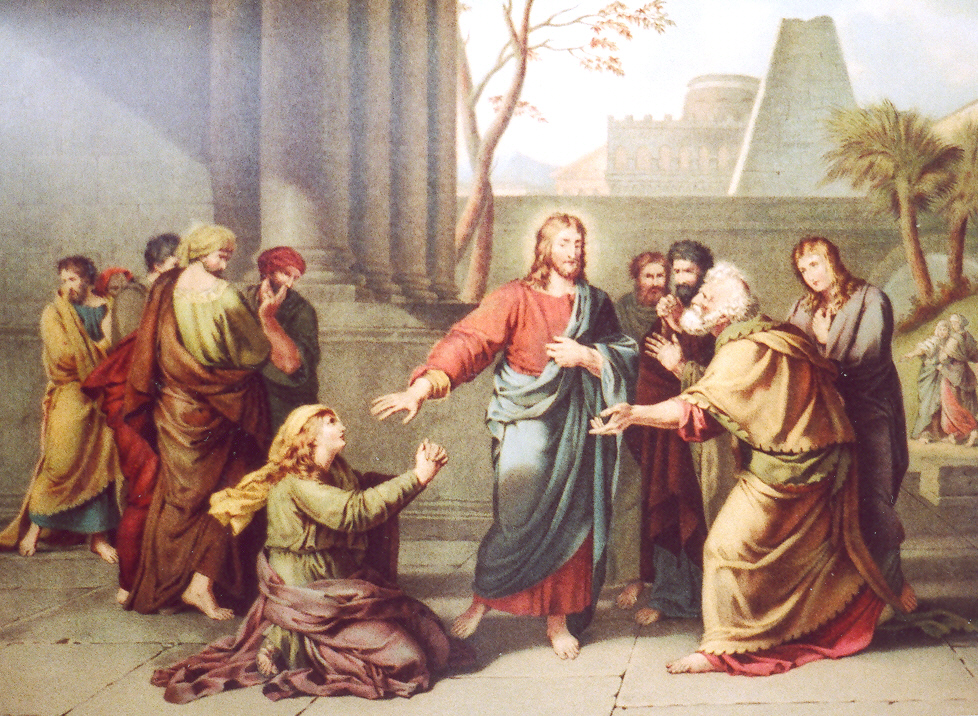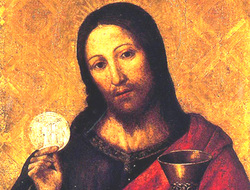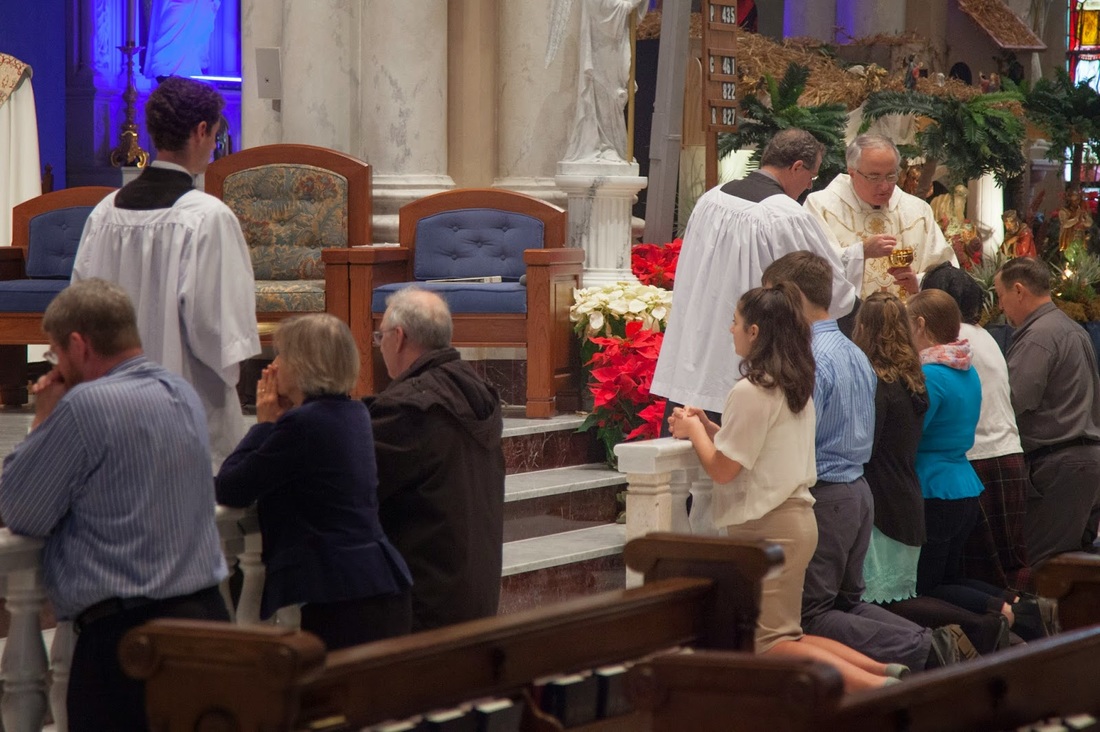Communion Policy - Closed CommunionAccording to Luther's Small Catechism, The Sacrament of the Altar (aka: "The Lord's Supper", "Holy Communion", "The Eucharist.") is (1) The true body and blood of Jesus Christ, (2) under bread and wine, (3) instituted by Christ himself, (4) for us Christians to eat and drink. The Sacrament of the Altar when eaten and drunk in faith give the recipient the forgiveness of sins, life and salvation. Those who eat and drink unworthily-that is, without faith in Christ's words--sin against the body and blood of Christ and eat and drink judgment upon themselves. That is why we practice closed communion.: Only those who are (1) members of our fellowship and (2) are in agreement with us in all of our Lord's teachings and (3) do not share communion at the altar of any other confession are invited to partake of the Lord's Supper at the altar. See the LC-C Guidelines for Congregational and Pastoral Practice here.
|
The Scriptural Witness
Holy Communion is Table FellowshipBut now I am writing to you not to associate with anyone who bears the name of brother if he is guilty of sexual immorality or greed, or is an idolater, reviler, drunkard, or swindler--not even to eat with such a one. For what have I to do with judging outsiders? Is it not those inside the church whom you are to judge? God judges those outside. “Purge the evil person from among you.” (1 Corinthians 5:13).
I appeal to you, brothers, to watch out for those who cause divisions and create obstacles contrary to the doctrine that you have been taught; avoid them. For such persons do not serve our Lord Christ, but their own appetites, and by smooth talk and flattery they deceive the hearts of the naive. (Romans 16:17-18) If one of the unbelievers invites you to dinner and you are disposed to go, eat whatever is set before you without raising any question on the ground of conscience. But if someone says to you, “This has been offered in sacrifice,” then do not eat it, for the sake of the one who informed you, and for the sake of conscience—I do not mean your conscience, but his. For why should my liberty be determined by someone else’s conscience? If I partake with thankfulness, why am I denounced because of that for which I give thanks? So, whether you eat or drink, or whatever you do, do all to the glory of God. (1 Corithnians 10:27-31) |
But Didn't Jesus Eat with Sinners?While it is true that Jesus ate and shared table fellowship with sinners (Mark 2:13-17), and that St. Paul rebuked St. Peter for practicing selective fellowship with the Circumcision Party (Galatians 2:11-16), this does not render void the practice of church discipline and of severing bonds of table fellowship in the face of manifest unrepentance. The sinners Jesus ate with never manifested unrepentance--that is, they never openly denied his teachings or scoffed at rebuke. Peter was rebuked for breaking fellowship with faithful Christians. Jesus came to save sinners because he loves them. Sometimes he calls upon his church to manifest that love in severing bonds of fellowship so they would not be complacent in their error.
When Jesus saved the life of the woman caught in adultery, he told her to "go and sin no more" (John 8:11). This is not to say we have to be sinless before we come to the Lord's Table. If that were the case, no one would be welcome. However, when it has been determined that a person is unrepentant--that is, they have been shown their error in doctrine and life, scoffed at the command to go and sin no more, and have repeatedly refused brotherly admonition, continuing to share christian fellowship is not the loving thing to do. Both Jesus and Paul are clear that such a one is to be "treated as a gentile or a tax collector" (Matthew 18:17) and "turned over to Satan for the destruction of the flesh" (1 Corinthians 5:5). This includes not only refusing them at the Lord's Table, but all privileges of Christian fellowship. This is not done out of spite or arrogance, but out of love and an earnest desire for their salvation, "that his spirit may be saved in the day of the Lord" (1 Corinthians 5:5). |
This is My Body: Holy Communion is Fellowship with GodNow as they were eating, Jesus took bread, and after blessing it broke it and gave it to the disciples, and said, “Take, eat; this is my body.” And he took a cup, and when he had given thanks he gave it to them, saying, “Drink of it, all of you, for this is my blood of the covenant, which is poured out for many for the forgiveness of sins. I tell you I will not drink again of this fruit of the vine until that day when I drink it new with you in my Father’s kingdom.” (Matthew 26:26-29)
So Jesus said to them, “Truly, truly, I say to you, unless you eat the flesh of the Son of Man and drink his blood, you have no life in you. Whoever feeds on my flesh and drinks my blood has eternal life, and I will raise him up on the last day. (John 6:53-54) |
One Body: Holy Communion is Fellowship with the ChurchAnd they devoted themselves to the apostles’ teaching and the fellowship, to the breaking of bread and the prayers. (Acts 2:42)
The cup of blessing that we bless, is it not a participation in the blood of Christ? The bread that we break, is it not a participation in the body of Christ? Because there is one bread, we who are many are one body, for we all partake of the one bread. (1 Corinthians 10:17) For, in the first place, when you come together as a church, I hear that there are divisions among you. And I believe it in part, for there must be factions among you in order that those who are genuine among you may be recognized. (1 Corinthians 11:18-19) |
Eating and Drinking Judgment: The Danger of Unworthy ReceptionJesus answered, "It is he to whom I will give this morsel of bread when I have dipped it." So when he had dipped the morsel, he gave it to Judas, the son of Simon Iscariot. Then after he had taken the morsel, Satan entered into him." (John 13:26-27a)
For anyone who eats and drinks without discerning the body eats and drinks judgment on himself.. (1 Corinthians 11:29) Whoever, therefore, eats the bread or drinks the cup of the Lord in an unworthy manner will be guilty concerning the body and blood of the Lord. (1 Corinthians 11:27) This is how one should regard us, as servants of Christ and stewards of the mysteries of God. Moreover, it is required of stewards that they be found faithful. (1 Corinthians 4:1-2) |

